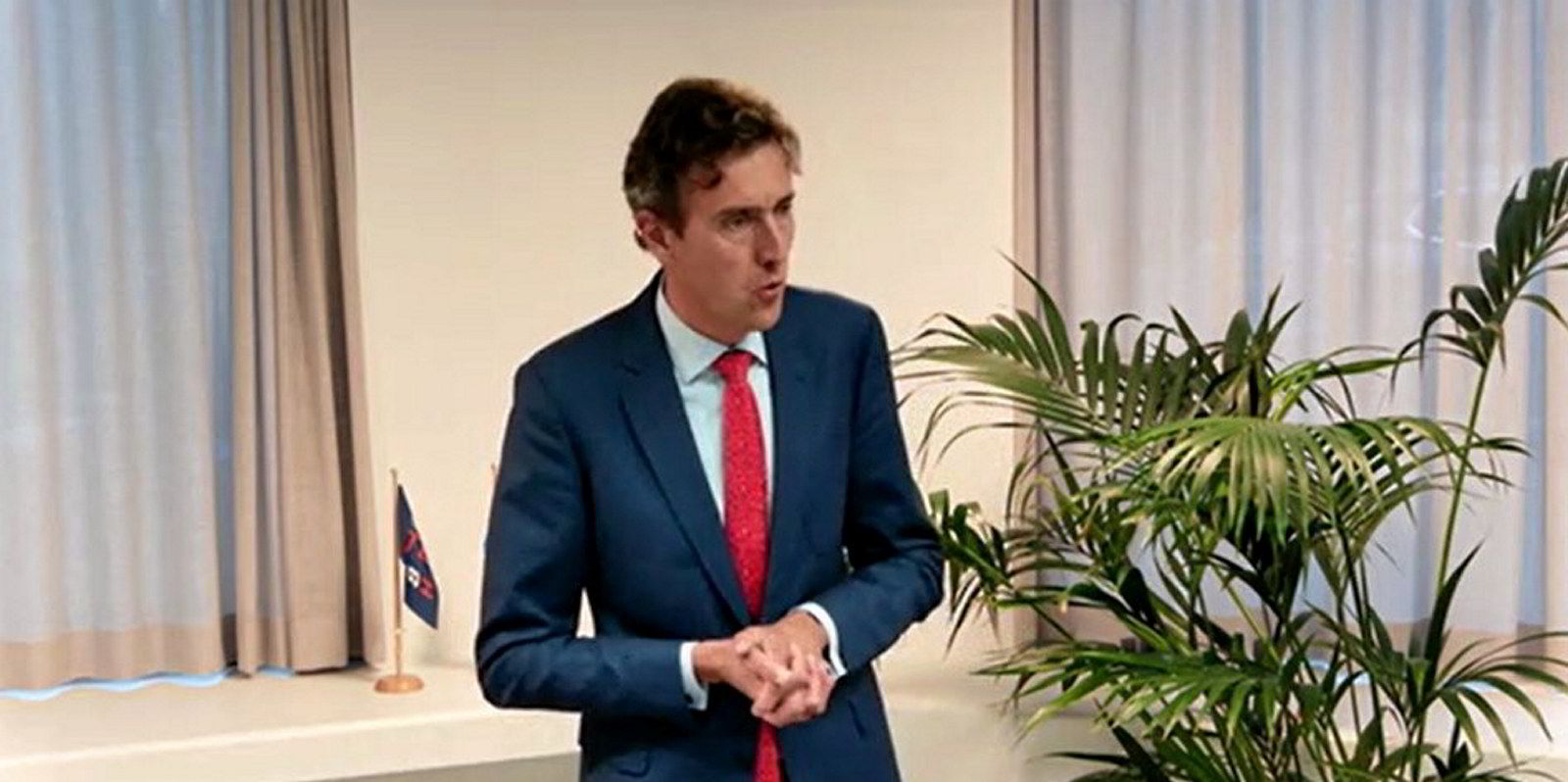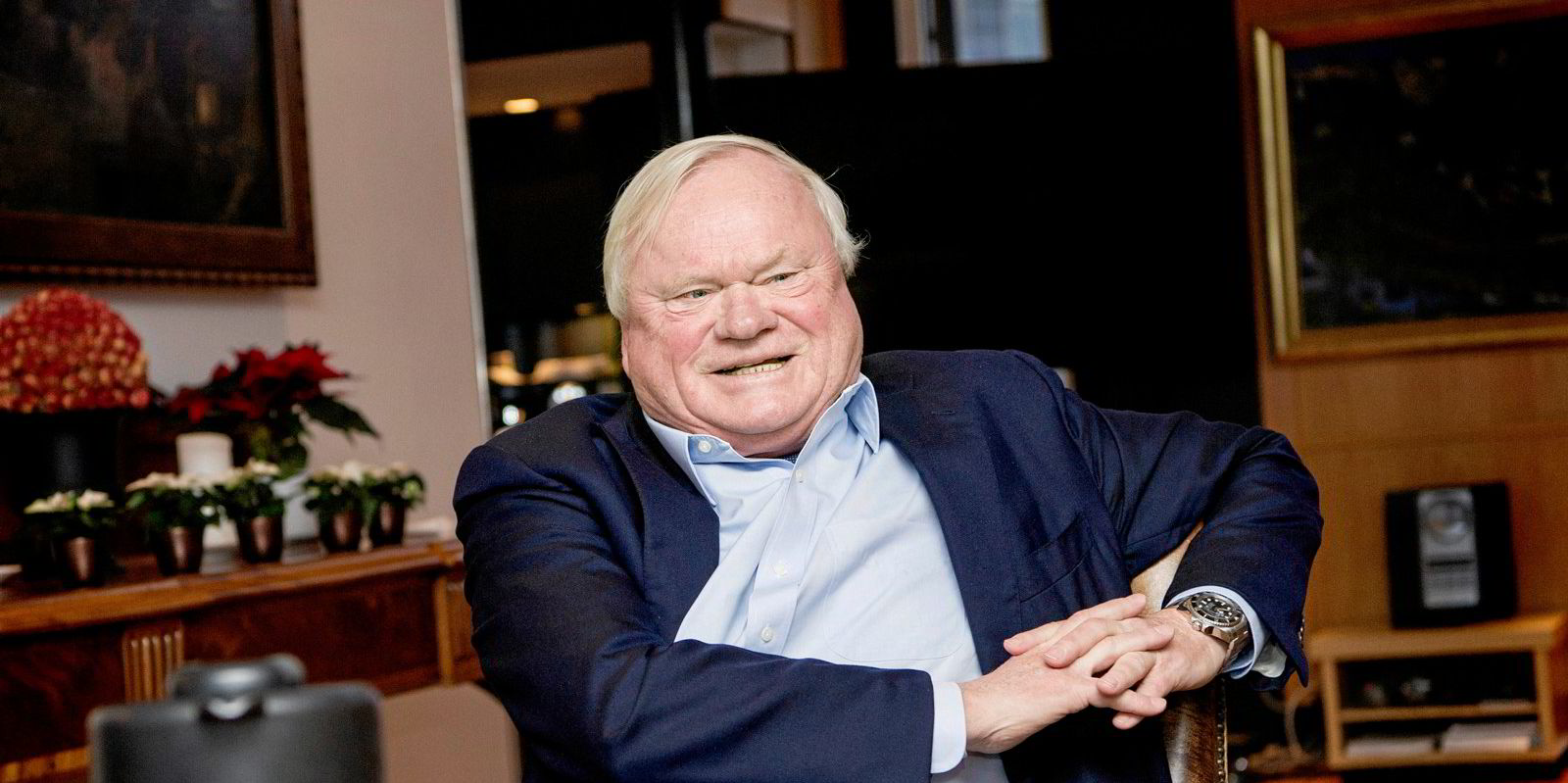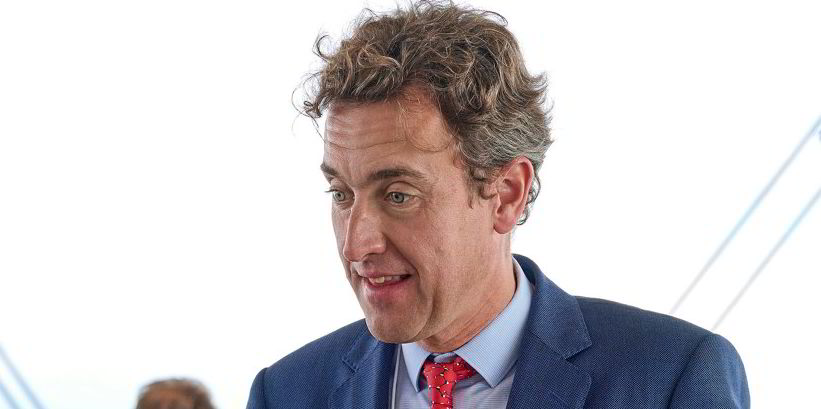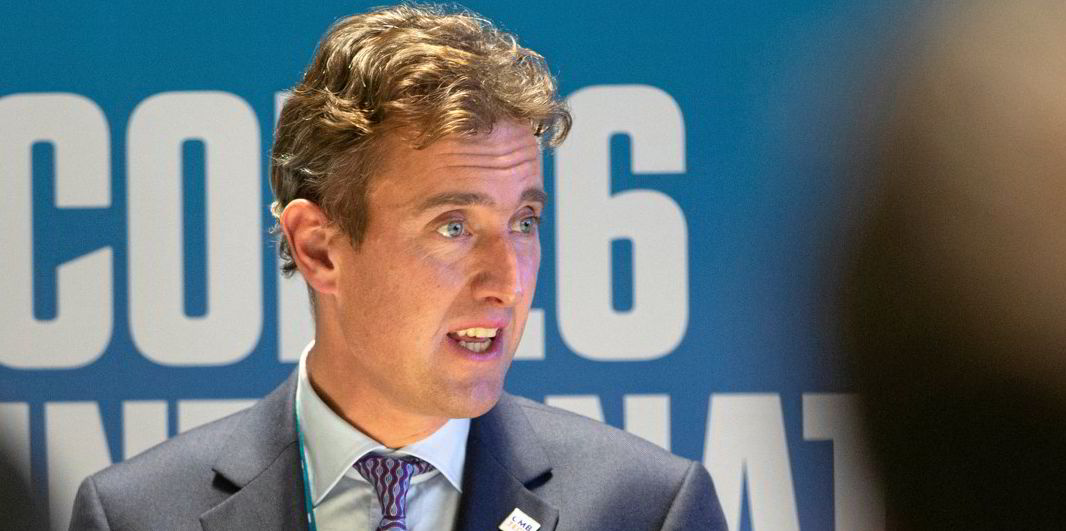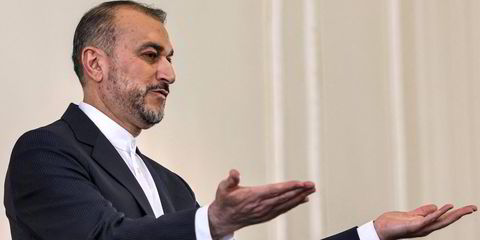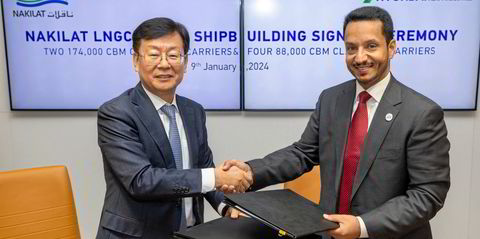Alexander Saverys, chief executive of Compagnie Maritime Belge (CMB) and Euronav, doubled down on his shipowning family’s green mission in an speech to shareholders on Friday.
Euronav is addressing investors today as it looks to reinvent itself after resolving an 18-month takeover tussle with John Fredriksen this autumn in which 24 ships went to Frontline in the largest big-tanker sale and purchase deal ever.
US and Belgium-listed tanker owner Euronav is buying CMB’s low-carbon shipping operation CMB.Tech for $1.15bn to create a fleet of 154 vessels worth $7bn.
Saverys told investors and media at Euronav’s capital markets day in Antwerp: “It is our aim to create the new CMB.Tech, the reference in sustainable shipping, creating value through a diversified fleet and a strong focus on decarbonisation.
“We will use, produce, distribute and, in the medium run, transport and carry low-carbon fuels.”
Saverys believes the combined group can be “the only investable diversified green shipping platform for ESG funds”.
Shareholders will vote on the deal on 7 February, with 15 March eyed as a closing date. The new merged company, to be called CMB.Tech, will own ships across the tanker, bulker, container and offshore wind sectors.
“A lot has been said and written about CMB, CMB.Tech and Euronav in the past 18 months,” Saverys told the meeting.
“The content ranged from relatively accurate to totally off the mark. We understand it has been difficult to assess what a new diversification and decarbonisation strategy for Euronav means without having access to more information.
“And I will not dwell on the reasons why we could not provide you with this information, because this would involve too much lawyer talk and we had enough of that over the past months.”
Value creation is key
He explained why the Saverys family did not believe in a merger with Frontline or a pure-play crude oil tanker company.
“It’s actually quite simple. Value creation,” he said.
“We believe that a diversified shipping group with a strong focus on decarbonisation will create more value than a pure-play tanker company. This does not mean we will exit the tanker markets. We still see opportunities there, but not as a pure-play.”
Saverys also addressed the question of why the $2.35bn proceeds from selling 24 VLCCs to Frontline is not being handed over as dividends.
“We believe that we will create more value by reinvesting this money rather than just pay a huge dividend. This does not mean we are against dividends. We see dividends as a value creator, but not the only value creator,” he said.
The family’s privately owned CMB has a 49% stake in Euronav, which requires it to offer to take over the rest of the stock.
Saverys called the mandatory bid price fair but not overly generous.
“We do it because the law says so,” he said.
Exit route offered
“The bid has the tremendous advantage of offering all of you an exit at a decade-high price should you want to sell.”
The same applies to the offer by Euronav for CMB.Tech, he explained.
“Ladies and gentlemen, after today, you should ask yourself one question,” Saverys concluded.
“Do I believe in what the Euronav and CMB.Tech team is telling me today? Do I believe that holding a stock of a company that is a reference green shipping stock will offer more value than continuing to be a company dependent 100% on the transport of crude oil?
“If the answer is yes, I gladly welcome you to take a front seat on board of our big fleet of ships — destination: zero-carbon shipping.”
